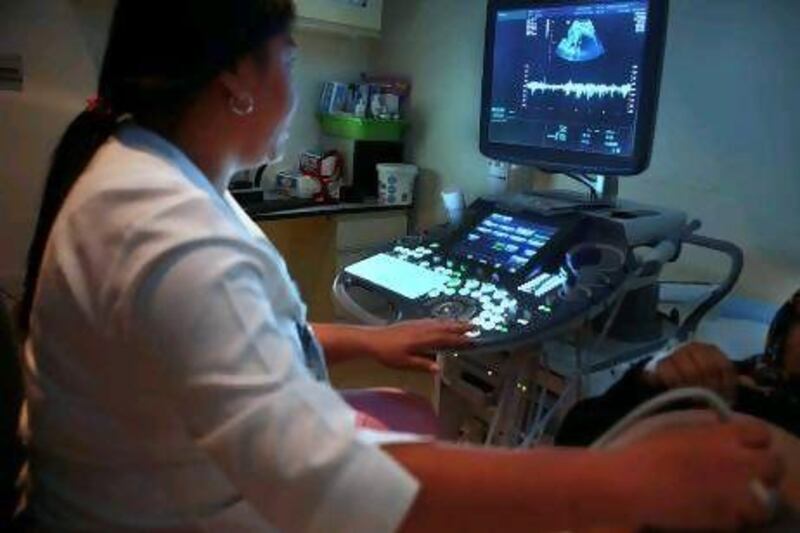DUBAI // A couple's joy at learning they are to have a baby is dashed early in the pregnancy when genetic testing reveals the child will have Down syndrome.
How do they react if their religion forbids abortion in these circumstances?
This type of ethical conundrum, where scientific discovery meets religious and cultural values, was a major talking point at a workshop in Dubai that attracted scientists from across the region and beyond.
Dubai Healthcare City and the American Association for the Advancement of Science co-hosted the event, the latest in a series that has been hosted by Jordan, Kuwait and Tunisia.
"In all kinds of research, ethics is a very important component," said Dr Ayesha Abdullah, the managing director of Dubai Healthcare City.
"Whether it's research on patients or on animals, scientists come up against ethical issues. Ethics vary from one country to another. Religion and culture play a role.
"Of course there are values that are universal - life is sacred, for example. But as you move from one region to another, culture and religion play a role.
"In the case of a family who learns they are expecting a Down syndrome baby, what do they do with this information? That is a difficult problem.
"In other countries the mother could have an abortion, but in a lot of countries that is not an option."
Another issue that was discussed was marriage between cousins and the risk, in some cases, of children suffering from the potentially fatal genetic disorder thalassaemia. Screening of couples can determine whether there is a risk.
"In this part of the world people have been having intermarriages for thousands of years," said Dr Abdullah. "All of a sudden you tell them they are a carrier of, say, thalassaemia and then cousins can't marry any more.
"Or if a woman is already pregnant and then the child has, for example, thalassaemia major, then what do you do? These ethical issues come with research and science, so these are the kinds of things scientists come up against.
"That is where the religion and culture play a role. It's about trying to find solutions, answers to problems, that affect the population through scientific inquiry but also looking at the ethics that go with them.
"In Islam - and I'm not a religious scholar - if the mother's life is in danger an abortion is allowed but that wouldn't be the case in this example."
Dr Abdullah said the workshop was intended to promote discussion of such issues rather than reach definite conclusions.
"There are no right or wrong answers," she said. "A lot of the decisions that we make are informed by our social values, our value systems. So how do you reconcile your value systems with the science that you're doing? That is what a lot of the discussions were about.
"In our part of the world Islam is pro-science so there isn't really a lot of limitation when it comes to scientific inquiry, as such. But scientific advances pose more and more ethical issues."
Scientists also discussed efforts by the UAE Genetic Diseases Association to spread awareness of the importance of screening.
"You have to be able to bring Islamic scholars into this," said Dr Abdullah.
"The association used Friday prayers to educate the public about the importance of screening.
"It was linked to the marriage fund for the locals, so a couple wouldn't qualify if there was a risk, and they got to a point where the numbers substantially decreased because of this effort."
Dr Mariam Matar, the association's founder and chairwoman, said: "Back in 2005 only 7 per cent of the target population, which is the age group from 18 to 27, were aware of blood genetic disorders and the way of transmission.
"According to the statistics for the same target population in May 2011 it jumped to 79.6 per cent.
"The workshop was a great opportunity for us to meet top scientists, especially those working in molecular biology and genetics."





